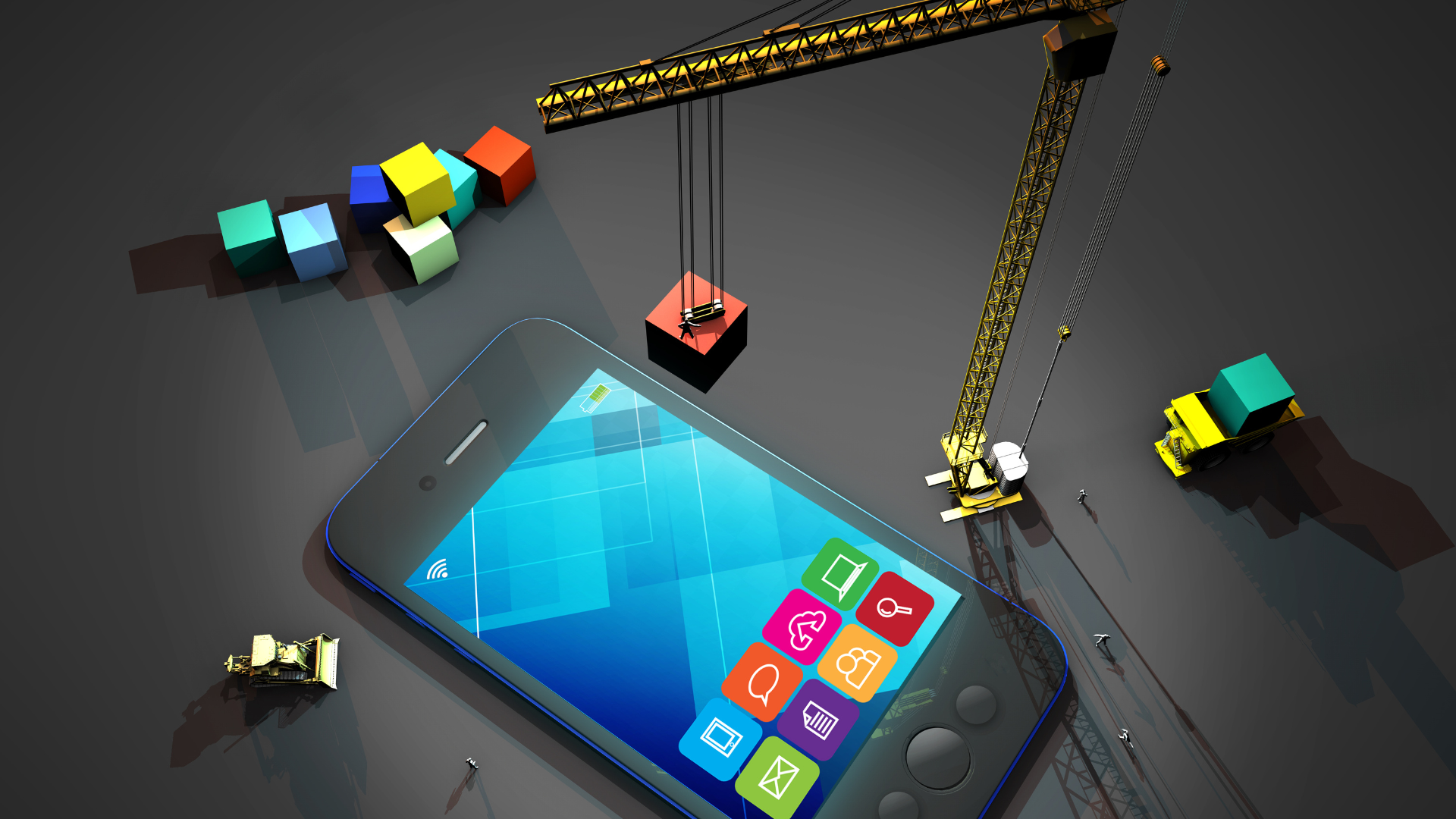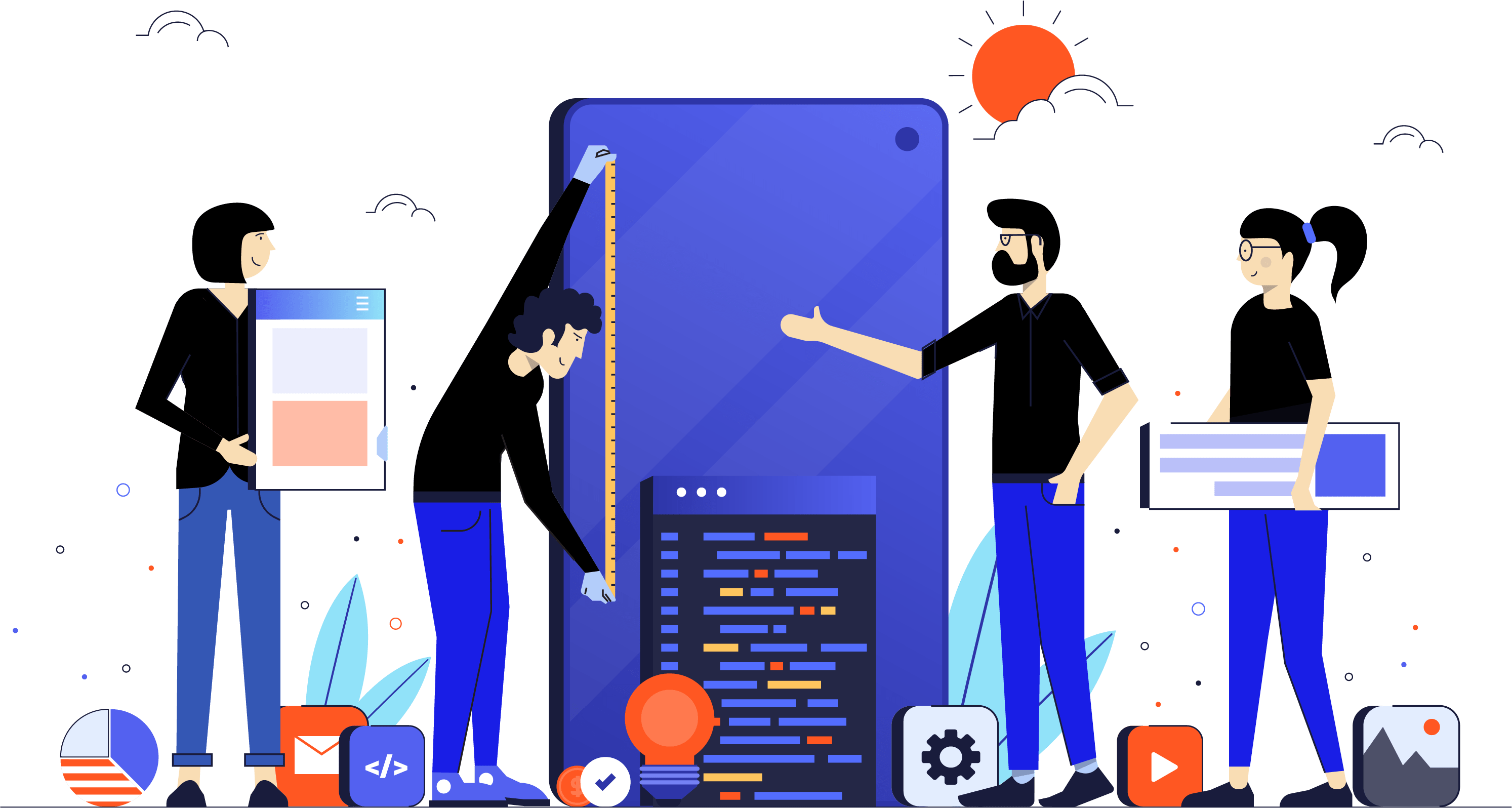
Introduction
In the rapidly evolving world of mobile app development, staying up-to-date with the latest trends is crucial for success. As we gear up for 2024, it’s essential to take a closer look at the top mobile app development trends that will shape the industry. From cutting-edge technologies to new user experiences, these trends have the potential to transform the way we interact with our favorite apps.
Importance
The importance of staying updated with mobile app development trends
In the highly competitive mobile app market, staying ahead of the curve is essential for businesses. By keeping up with the latest trends, app developers can leverage new technologies and deliver innovative solutions that meet the changing demands of users. This proactive approach not only ensures that apps remain relevant but also provides a competitive edge in a crowded marketplace.
Staying updated with mobile app development trends also allows businesses to anticipate user expectations and needs. By understanding emerging technologies, developers can create apps that cater to the evolving preferences of users, providing them with seamless experiences and keeping them engaged. Moreover, staying up-to-date with trends enables businesses to identify new monetization opportunities and tap into niche markets.
Lastly, staying updated with mobile app development trends fosters continuous learning and improvement. By keeping an eye on industry developments, developers can enhance their skill sets and stay relevant in a rapidly evolving field. This commitment to staying ahead of the curve is crucial for personal growth and career advancement in the mobile app development industry.
Trend #1: Artificial Intelligence and Machine Learning in mobile apps
Artificial Intelligence (AI) and Machine Learning (ML) have been making significant strides in the mobile app development landscape. AI-powered apps can analyze user data and provide personalized experiences. These apps can learn user preferences, make smart recommendations, and automate tasks, ultimately enhancing user engagement and satisfaction.
Machine Learning algorithms enable mobile apps to analyze massive amounts of data in real time, providing valuable insights to businesses. By leveraging ML capabilities, developers can optimize app performance, improve user experiences, and drive data-informed decision-making. As AI and ML technologies continue to evolve, their integration into mobile apps will become more seamless and sophisticated.
The growing adoption of AI and ML in mobile app development is evident across various industries. From healthcare to finance, AI-powered apps are transforming the way businesses operate and interact with users. In the healthcare sector, apps are leveraging AI to provide remote patient monitoring, diagnose diseases, and offer personalized treatment plans. In finance, AI-powered apps are automating financial analysis, fraud detection, and customer service, improving overall efficiency and user satisfaction.
Trend #2: Internet of Things (IoT) integration in mobile apps
The Internet of Things (IoT) is revolutionizing the way we interact with technology, and its integration with mobile apps is becoming increasingly prevalent. By connecting smartphones with everyday objects, IoT-enabled mobile apps offer users enhanced functionality, convenience, and control over their surroundings.
IoT integration in mobile apps allows users to remotely monitor and control smart devices such as thermostats, lights, and security systems. This level of automation and control enhances user convenience and energy efficiency. For example, users can adjust their home’s temperature, turn on lights, and even activate security systems while away, all from their mobile devices.
In addition to home automation, IoT integration in mobile apps is transforming industries such as healthcare, transportation, and agriculture. In healthcare, IoT-enabled apps can monitor patient vitals remotely, provide real-time health data to doctors, and even track medication adherence. In transportation, IoT integration allows for smart navigation, vehicle tracking, and predictive maintenance. In agriculture, IoT-powered apps assist farmers in monitoring soil moisture levels, managing irrigation systems, and optimizing crop yields.
Trend #3: Augmented Reality (AR) and Virtual Reality (VR) in mobile apps
One of the key trends we can expect in 2024 is the rise of augmented reality (AR) and virtual reality (VR) in mobile app development. With advancements in technology, more and more apps are incorporating AR and VR features to provide immersive and interactive experiences for users. This trend has been gaining traction in the gaming, education, and retail sectors and is expected to continue its growth.
AR and VR have the potential to transform the way we interact with mobile apps. In gaming, AR and VR technologies enable users to immerse themselves in virtual worlds, enhancing gameplay and delivering unique experiences. Educational apps can leverage AR and VR to create immersive learning environments, allowing students to explore historical sites, conduct virtual experiments, and interact with 3D models. Retail apps can use AR to enable virtual try-on experiences, allowing customers to visualize products in their own space before making a purchase.
The integration of AR and VR in mobile app development opens up new possibilities for businesses across industries. From enhancing user engagement to driving sales, AR and VR technologies have the potential to revolutionize the way we use mobile apps in the coming years.
Trend #4: Progressive Web Apps (PWA) for enhanced user experience
Progressive Web Apps (PWA) are gaining popularity as a cost-effective alternative to native mobile apps. PWAs offer a seamless user experience by combining the best features of web and mobile apps. They can be accessed through web browsers, eliminating the need for users to download and install apps from app stores.
PWAs provide enhanced performance and responsiveness, allowing users to access app-like experiences directly from their browsers. They can work offline, send push notifications, and deliver native-like user experiences. PWAs also have the advantage of being platform-agnostic, as they can be accessed on any device with a web browser, including smartphones, tablets, and desktops.
The adoption of PWAs is expected to rise in 2024 as businesses recognize the benefits they offer. PWAs eliminate the need for separate development and maintenance of native apps for multiple platforms, reducing costs and development time. Additionally, PWAs provide a wider reach by eliminating the barriers associated with app store approvals and downloads. This accessibility makes PWAs an attractive option for businesses looking to provide a seamless user experience across devices.
Trend #5: Voice-enabled mobile apps and chatbots
Voice-enabled mobile apps and chatbots are becoming increasingly popular as users seek more intuitive and convenient ways to interact with technology. Voice assistants like Siri, Google Assistant, and Alexa have paved the way for voice-enabled apps, allowing users to perform tasks, search for information, and control devices using voice commands.
Voice-enabled mobile apps offer a hands-free and natural way of interacting with technology. Users can dictate messages, make phone calls, search for information, and even control smart home devices using voice commands. This technology has the potential to revolutionize user experiences by making apps more accessible to a wider range of users, including those with visual impairments or physical disabilities.
Chatbots, powered by AI and natural language processing, are also gaining popularity in mobile app development. Chatbots can provide instant customer support, answer frequently asked questions, and even perform transactions. This technology not only enhances user experiences but also improves operational efficiency by reducing the need for human intervention in customer support processes.
Trend #6: Blockchain technology in mobile app development
Blockchain technology, known for its association with cryptocurrencies, is finding new applications in mobile app development. Blockchain offers a decentralized and secure way of storing and transferring data, making it ideal for applications that require transparency, security, and immutability.
In mobile app development, blockchain technology can be used to enhance security and privacy. Blockchain-based apps can provide secure and tamper-proof storage for sensitive user data, protecting it from unauthorized access or manipulation. Additionally, blockchain technology can facilitate secure peer-to-peer transactions within apps, eliminating the need for intermediaries and reducing transaction costs.
Blockchain technology also enables the development of decentralized applications (dApps) that run on a distributed network of computers, ensuring the integrity of data and transactions. These dApps have the potential to disrupt industries such as finance, supply chain, and healthcare by streamlining processes, reducing fraud, and increasing transparency.
Trend #7: Enhanced mobile app security and privacy measures
With the increasing integration of mobile apps into various aspects of our lives, the need for robust security and privacy measures is paramount. In 2024, we can expect a renewed focus on enhancing mobile app security to protect user data and prevent unauthorized access.
Mobile app developers will continue to prioritize encryption, secure authentication, and secure data storage to protect sensitive user information. App permissions will become more granular, allowing users to have more control over the data they share with apps. Additionally, biometric authentication methods such as fingerprint and facial recognition will become more prevalent, providing an extra layer of security.
Privacy measures will also be strengthened to comply with evolving regulations and user expectations. Developers will be required to provide clear and transparent privacy policies, informing users about the data collected and how it is used. App developers will implement privacy by design principles, ensuring that user data is protected throughout the app’s lifecycle.
Conclusion and final thoughts on the future of mobile app development
As mobile app development continues to evolve, keeping an eye on these trends will undoubtedly give businesses a competitive edge. By embracing the latest technologies and enhancing user experiences, app developers can create innovative solutions that captivate audiences in 2024 and beyond.
Artificial Intelligence and Machine Learning will enable personalized experiences and data-driven insights, while IoT integration will offer enhanced functionality and control. Augmented Reality and Virtual Reality will transform user experiences, while Progressive Web Apps will provide seamless experiences across devices. Voice-enabled apps and chatbots will make interactions more intuitive, while blockchain technology will enhance security and privacy. Finally, enhanced security and privacy measures will protect user data and build trust.
Conclusion
The future of mobile app development is bright and full of exciting possibilities. By staying up-to-date with the latest trends and leveraging emerging technologies, businesses can create apps that not only meet but exceed user expectations, driving success in the dynamic mobile app market.




